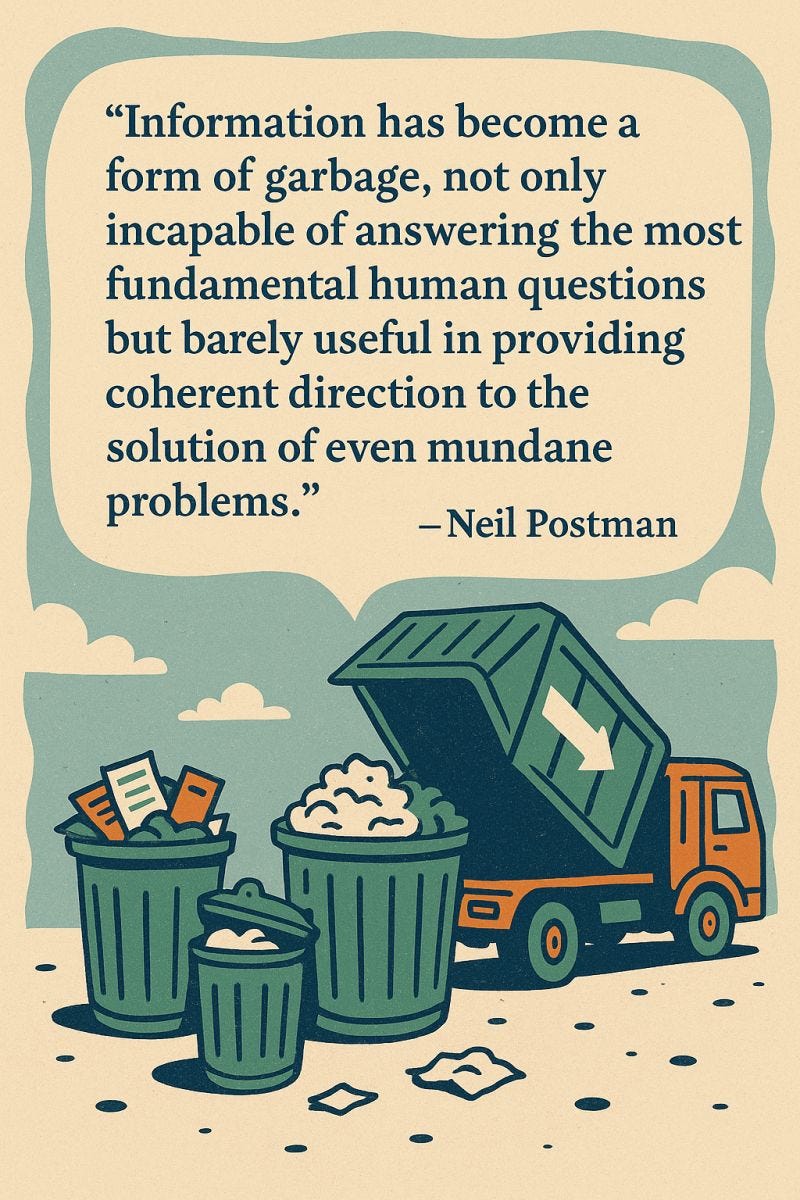Generative AI feels like magic. But Neil Postman now lives rent-free in my head.
I use AI every day. I build with it. I advise others to do the same. It's fast, impressive, and useful. It's also totally and completely addictive.
When I pause to think bigger, Postman's 1993 Technopoly creeps in. Prescient doesn't scratch the surface. This was written before the commercial internet, before smartphones, before social media — and long before the advent of generative AI.
He wrote:
“Tools are not integrated into the culture; they attack the culture. They bid to become the culture.”
Sound familiar?
I’m starting to wonder if my enthusiastic, almost reflexive use of these tools is blurring my sense of where technology ends and meaning begins.
Postman wasn’t anti-tech. He was anti-unquestioned progress. He warned about the moment:
“Information has become a form of garbage, not only incapable of answering the most fundamental human questions but barely useful in providing coherent direction to the solution of even mundane problems.”
That line hits whenever ChatGPT spits out a draft, a research report or pretty much anything I didn't bother to think about before asking.
And then there's this bit:
“The technological resistance fighter maintains an epistemological and psychic distance from any technology, so that it always appears somewhat strange, never inevitable, never natural.”
That distance feels necessary now. Not to reject AI, but to understand it.
Are you feeling this tension too?
P.S. If you've read Postman or are planning to, let me know, as I'd love to discuss it!
This was originally posted on LinkedIn.




